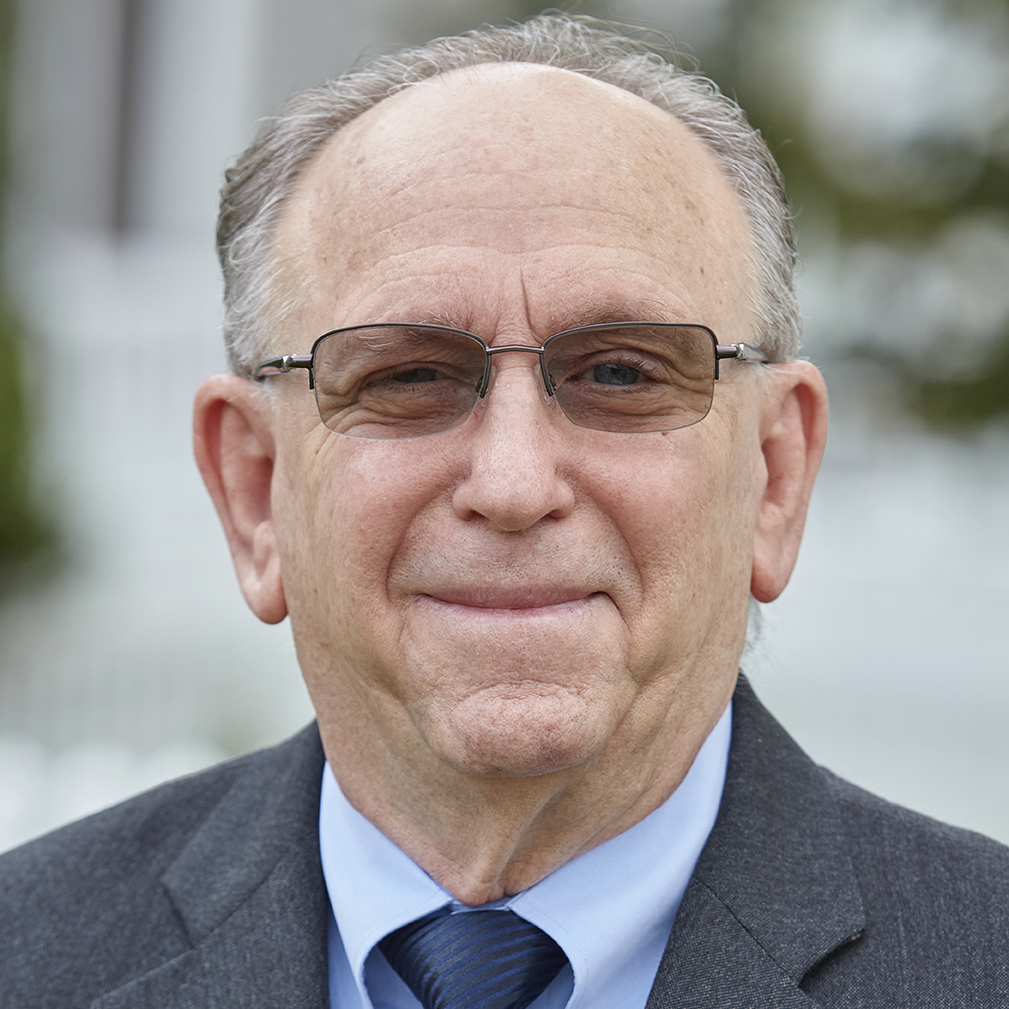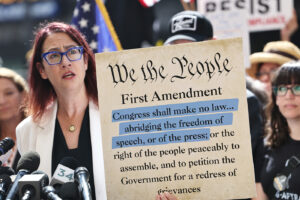October 23, 2025
Alan Rodin: A Journey of Overcoming Shyness
By Nic Wong
By Alisa Uchaykina

Shyness and the fear of public speaking are common experiences for many individuals. According to a 2022 article in Psychology Today, approximately 40–50% of American adults describe themselves as shy or uncomfortable in social situations, and research published in the National Institutes of Health’s PMC repository indicates that about 77% of the general population experience some level of fear related to public speaking. Speaking up is rarely innate; most people need to develop it through practice and by gradually pushing beyond their comfort zone, and one of those people who struggled with this challenge was a man named Alan Rodin.
Alan was born on June 20st, 1950, in Brooklyn, New York, along with his older brother David. Despite having the same parents, the two brothers were complete opposites, both in appearance and personality. Alan is light-skinned, with blue eyes, blond hair, small in stature, and shy. David, on the other hand, has darker skin, black hair, brown eyes, a larger build, and has always been extremely confident. That confidence often spilled over into Allan being teased by his brother. David would frequently say hurtful things to Alan and put him down, which had a lasting impact on Alan’s self-esteem. Their parents worked a lot, which resulted in the brothers spending a lot of their time alone and without any adults to resolve their siblings’ conflicts. Now, years later, their relationship still remains tense. David still treats his younger brother as if he were a child.
“David just can’t abandon his role as my older brother. He calls me every day, and no, I don’t return his calls, because I just don’t have much to say to him. It’s as if he is always checking on me, making sure I’m okay. Dave, where were you when I really needed you? Where were you when I needed you to protect me in high school? Instead of letting a big guy pick on me, you should’ve protected me then.”
In elementary school, Alan’s relationships with classmates were few and not always successful. He was a shy and reserved child, and his smaller stature made him an easy target for teasing and bullying. Fortunately, there was a gym teacher at Alan’s elementary school — Mr.Alvin Epstein. All the students revered him, and when Mr.Epstein noticed that Alan was being picked on, he made Alan his ‘assistant’. Becoming Mr.Epstein ‘assistent’ helped Alan gain prestige among many of his peers — now he was seen as “cool,” and some even envied him. Mr. Epstein’s and Alan’s bond continued long after Alan’s graduation from elementary school. As a matter of fact they still call each other frequently, and 15 years ago, Mr.Epstein traveled from Florida to New York to surprise Alan for his 60th birthday.
Alan stated, “…And we’re still in touch. We call each other about once a month, and when I visit my brother David in Florida, I also visit Mr. Epstein. He is an old man now—almost ninety. It’s such a special relationship, one that has lasted over 65 years. To the other kids at P.S. 99 in Brooklyn, he was simply our gym teacher. But to me, he was like a father. Mr. Epstein knew that my father was too busy working, and he also knew that I needed someone to teach me strength and to believe in me.”
Despite his shyness, Alan was outgoing and cheerful with friends. He said, “When I went to functions like engagement parties or weddings, and I didn’t know the people, I would basically hang out by myself, but in my group of friends, people said, ‘Oh my gosh, Alan, he is crazy! He is so funny! He never shuts up!’ So it was like having two personalities. And I knew that I should’ve made more of an effort to go and meet people and say ‘hi,’ but I never did that.”
Alan was very active in high school. He was always involved in extracurricular activities. He joined the school’s track and tennis teams. But he didn’t socialize much — in those sports, everyone is on their own. “When you think about it you really don’t need to talk to other players that much. On the track team, I just had to run — no need to have conversations with teammates, almost the same with tennis.”
One of the most significant events in Alan’s life happened during the summer of 1965. At the time, he was traveling in a foreign country, serving as a youth emissary in a program organized jointly by the United States and the host country’s government. During one memorable moment of this experience, Alan realized the severity of his difficulty in communicating with strangers — especially authority figures.
Imagine this: you are in a foreign country, touring its main government buildings. During a lunch break, there is an unexpected opportunity for one member of your group to have a private lunch with the former head of that country — someone who happened to be on the premises by coincidence. It would be like visiting the White House in Washington, D.C., and sharing a meal with former president Barack Obama.What are the chances you would be chosen? What would that experience be like?Ask Alan, because from a group of more than one hundred teenagers, he was the one selected.
Instead of taking place in a grand dining hall, the meeting was held in a small kitchen, creating the feeling of visiting someone’s home. Alan had the opportunity to ask questions and start a conversation, but fear and nerves got the better of him. He stayed mostly silent, murmured a few words, and simply ate his lunch. When lunch ended, there was a formal goodbye, and he returned to his group. Nothing remarkable happened, and Alan still regrets missing his chance with this world-famous dignitary.
After finishing high school, it was time for Alan to apply to college. “I always wanted to be a teacher,” says Alan. “I was okay in high school, but I did great in the required speech course. And the teacher said to me, ‘You’re pretty good at this, what is your major?’ I said, ‘I don’t know, I just want to be a teacher.’ He goes, ‘Why don’t you major in speech and theatre?’ And so I did.” That course helped him choose his career path.
Instead of being just a speech teacher, staying within the four walls of a school, Alan decided to specialize in speech therapy. From 1968 to 1973, at Brooklyn College, he also took public speaking courses, which gradually helped him open up and grow more confident in himself. However, to fully work in the field, a master’s degree was necessary. He entered Northwestern University in 1973. Back then, it was the number one school for speech therapy. That gave Alan a lot of confidence — he was at one of the best schools, on a full scholarship, and earned his master’s degree in speech and language pathology.
After that, he worked as a speech therapist in private practice in Beverly Hills, California from 1976 to 1990, but Alan’s education didn’t end there. “ When I was in the middle of a mid-life crisis, I went back to college — to Pepperdine University — and got a degree in psychology, so I could figure out why I was so challenged when it came to communication, even though it was my major. I thought I could learn more about myself by becoming a psychologist than by going for psychological therapy. The studies made it clear to me what I should do, and how I should go about it. It kind of explained why my brother treated me the way he did, why I responded that way, and why I continued that behavior even as an adult.” After many years of studying, things became clearer and simpler for Alan, and that’s when he realized that something had to change.
Today, despite his age, Alan Rodin remains actively engaged in his profession. He teaches speech classes at Kingsborough College during the day and at Touro University in the evenings.Over the years, he has earned a reputation as one of the professors that students genuinely appreciate. One of his students, Damoni Hicks, said: “Professor Rodin is one of those rare, truly kind teachers you don’t often come across. He genuinely takes the time to understand your point of view, and overall, I’d say he’s an outstanding person. I honestly wish we’d had more time with him.” Another student, Xenia Badillo, added, “His stories were the best — he would openly talk to us about his life and experiences, and it really opened my eyes to the world.” Thus, from a shy and reserved young man, Alan Rodin has grown into a respected professor, admired by his students for his expertise and dedication.


